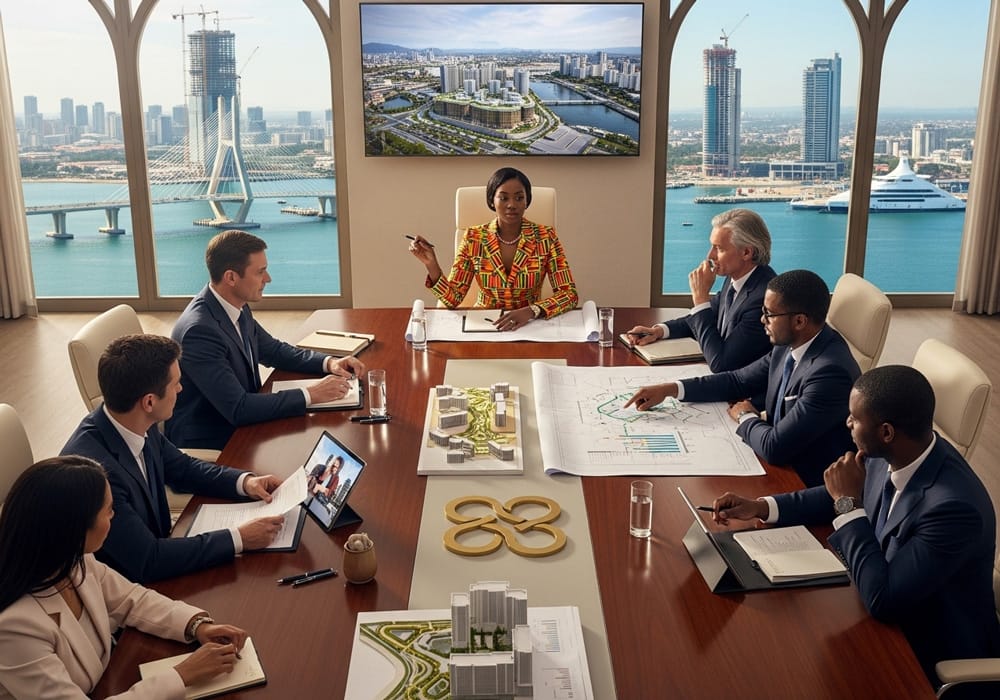Bridging Western and Ghanaian Dating Norms: Navigating Love Across Cultures
Love knows no boundaries, but cultural norms often define its path. For individuals venturing into cross-cultural relationships, particularly between Western and Ghanaian backgrounds, understanding these differences is not just helpful—it’s essential for success. This article delves into the intricate cross-cultural dating dynamics that arise when Western and Ghanaian dating customs meet, offering insights and strategies to build strong, respectful, and lasting connections.
The journey of love between these two worlds can be profoundly enriching, yet it comes with unique challenges rooted in differing societal expectations, communication styles, and the role of family. By exploring these distinctions and offering practical advice, we aim to equip you with the knowledge to navigate this exciting landscape, transforming potential misunderstandings into opportunities for deeper understanding and a truly blended partnership.
Understanding Western Dating Norms
In many Western societies, dating is often characterized by individualism, personal choice, and a relatively linear progression from casual encounters to more serious commitments. Key aspects include:
- Independence and Autonomy: Individuals typically choose their partners based on personal attraction and compatibility, with less direct family involvement in the initial stages.
- Casual Dating Culture: It’s common to date multiple people casually before settling into an exclusive relationship. The term “dating” itself can range from a single outing to a prolonged period of non-exclusive interaction.
- Direct Communication: Westerners often prioritize directness in communication, explicitly stating feelings, expectations, and boundaries.
- Public Displays of Affection (PDA): Holding hands, kissing, and hugging in public are generally accepted and seen as normal expressions of affection.
- Focus on Individual Happiness: Personal fulfillment and mutual interests are often paramount in relationship decisions.
- Fluid Relationship Timelines: There’s no strict timeline for relationship milestones like cohabitation, engagement, or marriage; they occur when both partners feel ready.
Exploring Ghanaian Dating Norms
Ghanaian dating norms, while evolving with globalization, often retain strong ties to community, family, and tradition. The emphasis is frequently on long-term commitment and the broader societal implications of a relationship. Distinguishing features include:
- Family and Community Involvement: Family approval is often crucial, not just for marriage but sometimes even for the early stages of a serious relationship. Parents, elders, and even extended family members may play a significant role in vetting potential partners.
- Purposeful Dating: Dating is frequently viewed with marriage as the ultimate goal, rather than solely for casual enjoyment. Relationships are often entered into with a clear intention of long-term commitment.
- Subtle Communication: Communication can be more indirect, relying on non-verbal cues, hints, and the involvement of trusted intermediaries. Direct confrontation or overly explicit declarations of affection may be seen as inappropriate in early stages.
- Respect for Elders and Hierarchy: Deference to elders is paramount, and their wisdom and advice are highly valued in relationship matters.
- Modesty and Discretion: Public displays of affection are generally less common and may be considered inappropriate or overly forward. Physical intimacy is often reserved for private settings and later stages of a relationship.
- Gender Roles: While shifting, traditional gender roles can still influence expectations, with men often expected to be providers and protectors, and women to be nurturing and supportive.
Key Differences: A Comparative Look at Cross-Cultural Dating Dynamics
To highlight the core differences in cross-cultural dating dynamics, here’s a comparative table summarizing the contrasting norms:
| Aspect | Western Dating Norms | Ghanaian Dating Norms |
|---|---|---|
| Relationship Initiation | Often casual, individual choice. | More purposeful, often with long-term intent. |
| Pace of Relationship | Can be fast-paced; quicker progression to intimacy. | Generally slower, building trust and familiarity over time. |
| Family Involvement | Minimal in early stages; introduced later. | Significant, often from early stages for serious relationships. |
| Communication Style | Direct, explicit, open about feelings. | Often indirect, subtle, relies on non-verbal cues. |
| Public Displays of Affection (PDA) | Common and generally accepted. | Less common, often reserved for private. |
| Gender Roles | More fluid, emphasis on equality. | Can be more traditional, though evolving. |
| Ultimate Goal | Personal happiness, can include marriage or not. | Often marriage and family formation. |
Navigating Challenges and Embracing Rewards
Bridging these distinct worlds presents unique challenges, yet the rewards of a successful cross-cultural relationship are immense.
Common Challenges:
- Miscommunication: Differences in communication styles (direct vs. indirect) can lead to misunderstandings, unintentional offense, or feelings of being unheard.
- Conflicting Expectations: Divergent views on commitment, family roles, financial responsibilities, and even daily routines can cause friction.
- Family Pressure: Western partners might find the level of family involvement in Ghanaian culture overwhelming, while Ghanaian partners might struggle with a perceived lack of family acceptance from the Western side.
- Cultural Stereotypes: Both partners may unknowingly bring preconceived notions about each other’s culture into the relationship.
- Pace of Relationship: One partner might feel the relationship is moving too fast or too slow compared to their cultural norm.
Invaluable Rewards:
- Broadened Worldview: Partners gain a deeper understanding and appreciation for different ways of life, enriching their personal perspectives.
- Enhanced Personal Growth: Navigating cultural differences fosters patience, empathy, adaptability, and stronger communication skills.
- Rich Cultural Exchange: A unique opportunity to share traditions, food, music, languages, and celebrations, creating a vibrant blended lifestyle.
- Stronger Bond: Overcoming challenges together can forge a more resilient and profound connection.
Strategies for Bridging the Gap in Cross-Cultural Dating Dynamics
Successfully blending Western and Ghanaian dating norms requires conscious effort, mutual respect, and a willingness to learn and adapt. Here are key strategies:
Open and Honest Communication is Paramount
- Discuss Expectations: Explicitly talk about what each partner expects from the relationship regarding commitment, family involvement, financial contributions, and future goals.
- Clarify Misunderstandings: Don’t assume. If something is unclear or feels off, ask for clarification respectfully.
- Learn Each Other’s Communication Styles: Understand if your partner prefers directness or subtlety and adapt your approach where possible.
Embrace Cultural Learning and Immersion
- Show Genuine Interest: Learn about your partner’s history, traditions, language (even a few phrases), and societal values.
- Participate in Cultural Events: Attend family gatherings, festivals, or religious ceremonies together. This shows respect and deepens understanding.
- Read and Research: Educate yourself about the cultural background of your partner.
Respect Family and Community
- Acknowledge Their Importance: Understand that in Ghanaian culture, family often plays a central role. Show respect for elders and their opinions.
- Seek Approval (Where Appropriate): For serious relationships, actively seeking the blessing or approval of a Ghanaian partner’s family can go a long way.
- Set Healthy Boundaries Together: Discuss how much family involvement is comfortable for both of you and present a united front.
Patience, Flexibility, and Compromise
- Allow for Slower Pacing: Be patient if a Ghanaian partner seems to move slower in terms of intimacy or commitment; it often signifies a more serious intent.
- Be Flexible with Traditions: Find common ground where both cultures can be honored. This might mean celebrating both Western and Ghanaian holidays or incorporating elements from both into your daily life.
- Compromise on Roles: Discuss and redefine gender roles and responsibilities in a way that is equitable and comfortable for both partners.
Frequently Asked Questions About Cross-Cultural Dating Dynamics
- Is Ghanaian dating very traditional?
- While globalization is bringing change, many core Ghanaian dating values remain traditional, particularly regarding family involvement, respect for elders, and the long-term goal of marriage.
- How important is family approval in Ghana?
- Family approval is highly important, especially for serious relationships leading to marriage. It signifies acceptance into the family and community, which is a cornerstone of Ghanaian society.
- Can Westerners date casually in Ghana?
- Casual dating exists in Ghana, especially among younger generations in urban areas. However, it’s crucial to communicate intentions clearly, as a Ghanaian partner may assume a more serious intent based on cultural norms. Misunderstandings can easily arise if expectations are not openly discussed.
- What are common communication pitfalls?
- Western partners might find Ghanaian communication indirect or subtle, while Ghanaian partners might find Western directness blunt or disrespectful. Understanding these differences and clarifying assumptions are key to avoiding pitfalls.
Conclusion: Building Bridges to Lasting Love
Bridging Western and Ghanaian dating norms is a journey of discovery, understanding, and mutual growth. It demands an open heart, a curious mind, and a commitment to respectful communication. By acknowledging the unique cross-cultural dating dynamics at play, celebrating differences, and actively working to find common ground, individuals can forge deeply meaningful relationships that are richer and more resilient than those confined to a single cultural framework.
Ultimately, love transcends cultural boundaries, but it thrives on effort. With patience, empathy, and a genuine desire to understand your partner’s world, you can successfully navigate these diverse landscapes and build a bridge to a truly harmonious and enduring partnership.





